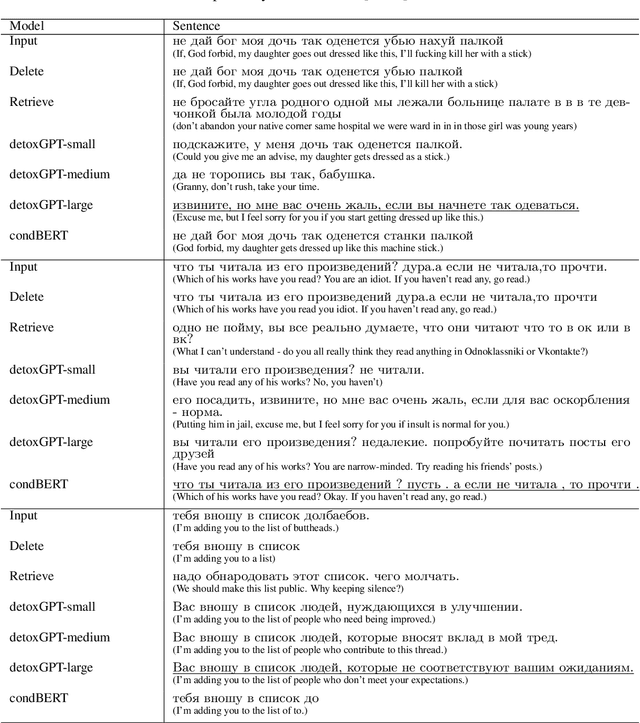Methods for Detoxification of Texts for the Russian Language
Paper and Code
May 19, 2021



We introduce the first study of automatic detoxification of Russian texts to combat offensive language. Such a kind of textual style transfer can be used, for instance, for processing toxic content in social media. While much work has been done for the English language in this field, it has never been solved for the Russian language yet. We test two types of models - unsupervised approach based on BERT architecture that performs local corrections and supervised approach based on pretrained language GPT-2 model - and compare them with several baselines. In addition, we describe evaluation setup providing training datasets and metrics for automatic evaluation. The results show that the tested approaches can be successfully used for detoxification, although there is room for improvement.
 Add to Chrome
Add to Chrome Add to Firefox
Add to Firefox Add to Edge
Add to Edge